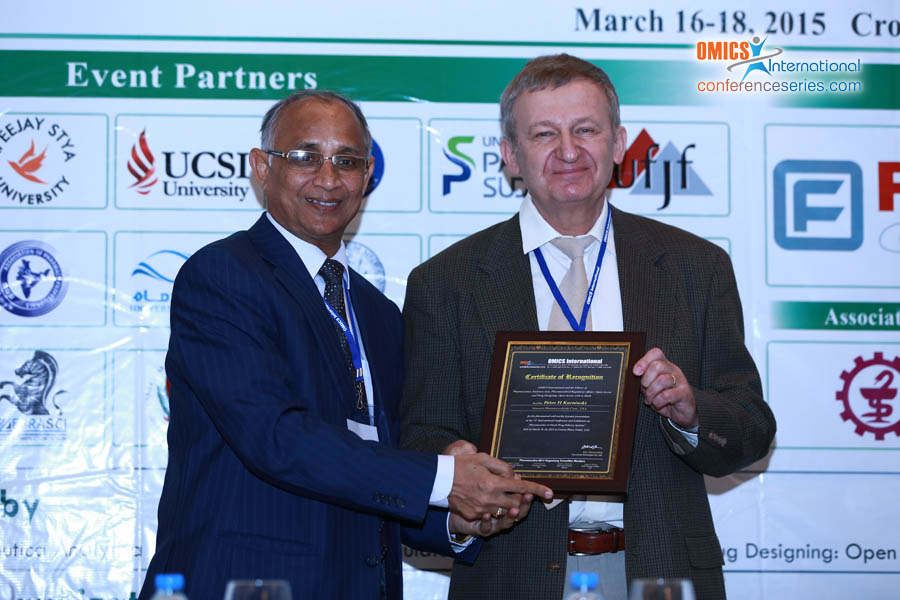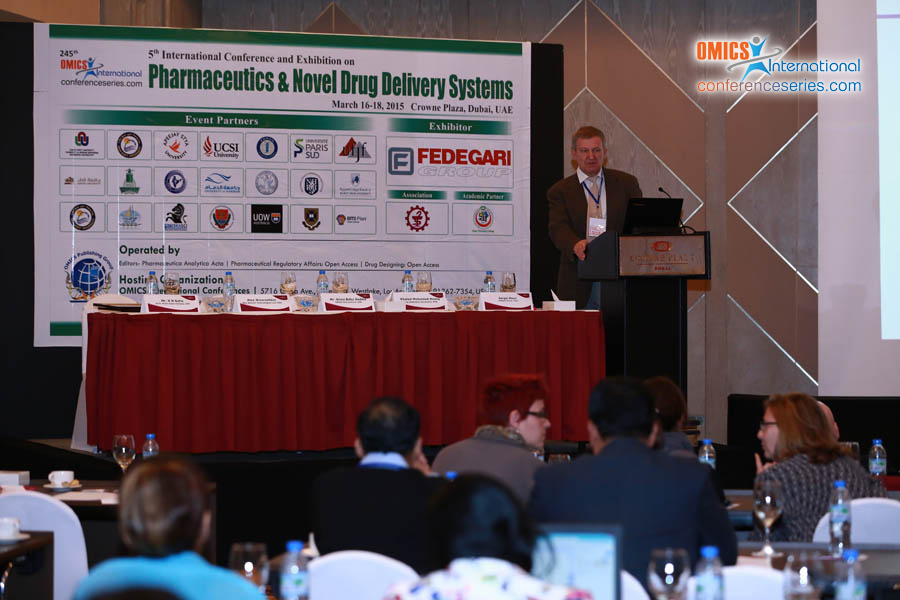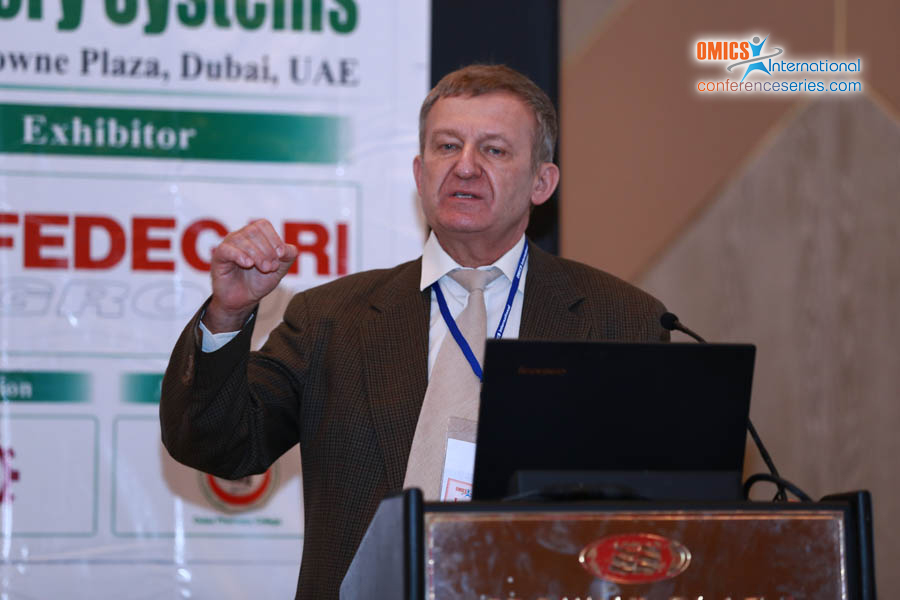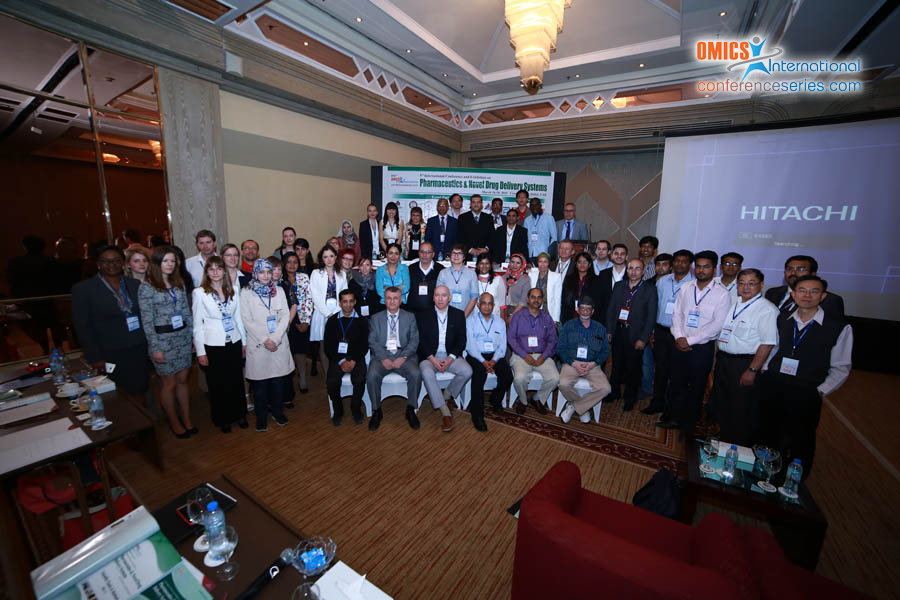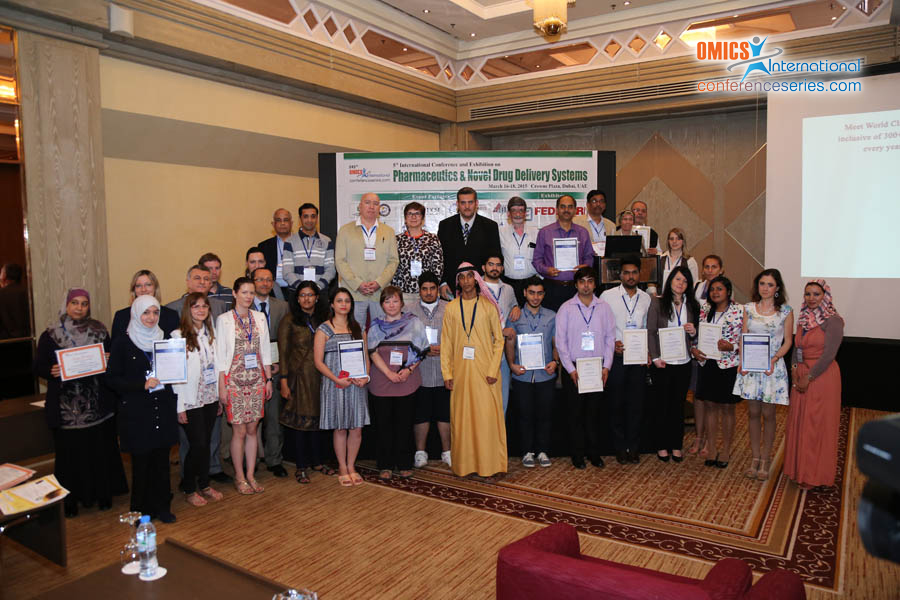
Peter Karpinski
Novartis Pharmaceuticals Corp., USA
Title: Perplex polymorphic behavior of active pharmaceutical ingredients
Biography
Biography: Peter Karpinski
Abstract
Different polymorphs of the same drug substance display distinct physical properties, such as melting point, solubility, dissolution rate, hygroscopicity, stability, etc. The ability to successfully produce and reproduce specific stable polymorphs is intricately correlated with the efficiency and speed of drug development, the robustness of manufacturing process, and ultimately – the stability and quality of active pharmaceutical ingredients (APIs) This paper focuses on several interesting – and sometimes perplex – case study examples of polymorphs ‘behaving badly’. Statistically, 85% APIs exhibit (pseudo) polymorphism, and 50% of APIs have multiple (pseudo) polymorphs. The capability to effectively and consistently manufacture specific stable (pseudo) polymorphs is an integral part of the full API development process. This cannot be accomplished without a thorough and systematic process involving the polymorph discovery stage, polymorph detection, and analytical determination of the properties of the forms discovered. These nontrivial tasks are full of surprises - as in the world of polymorphs confusing results are standard. Challenging and/or unusual situations are common, such as: occurrence of forms difficult to discriminate amongst, forms difficult to detect, ‘disappearing’ polymorphs, isostructural forms of same and diff erent molecules, same form but inconsistent properties for diff erent batches, or a new, more stable form is discovered (too) late… In order to avoid late-stage development surprises, only thermodynamically most stable API forms should be developed. Frequently, such forms are discovered aft er a significant research and development effort. Multiple complementary techniques must be used in polymorph detection and characterization which, however, is a time-consuming and highly labor-intensive exercise.

